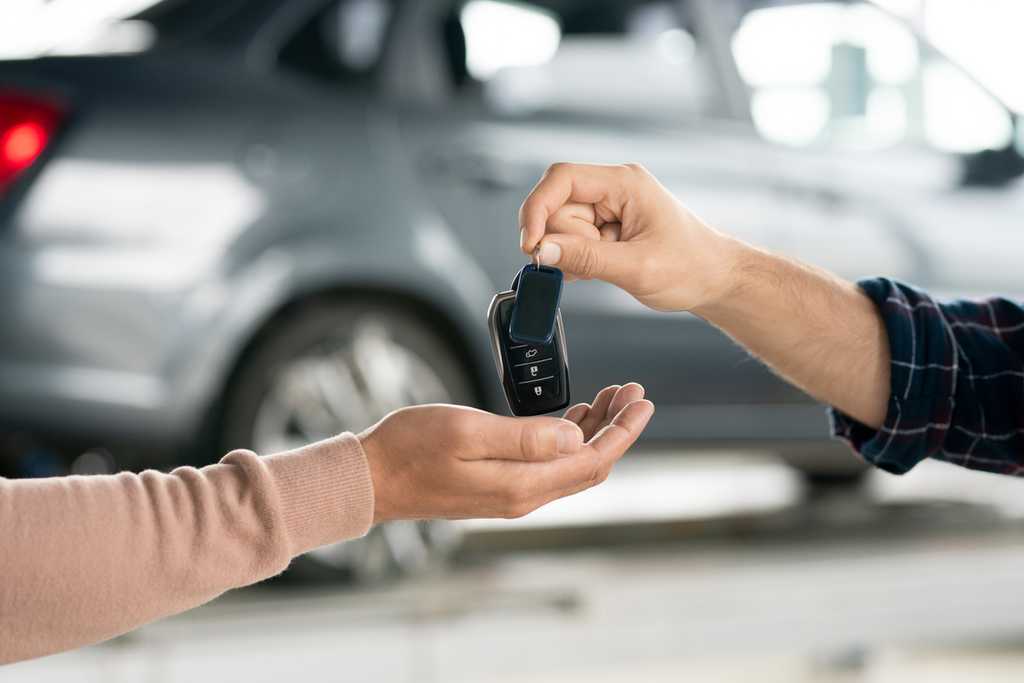Data shows that about 95% of U.S. households own at least one vehicle. But if you’re part of the 5% of non-vehicle owners, and you borrow or rent cars to get around, you might consider getting a special type of coverage called non-owner car insurance. In this guide, we’ll explain what non-owner insurance covers, who needs it, and how much it costs.
What is non-owner car insurance?
Non-owner car insurance is a type of auto insurance that is only sold to non-vehicle owners. When you borrow other people’s vehicles or rent a car, this policy provides liability insurance, and will protect you if you cause an accident in a vehicle you don’t own.
One important thing to know about non-owner car insurance is that it’s a secondary policy. That means the coverage only takes effect once the vehicle owner’s policy limits are reached. If you cause an accident and the primary policy covers the other driver’s losses in full, the coverage from your non-owner insurance policy is not used.
What does a non-owner car insurance cover?
Non-owner car insurance offers fairly limited coverage compared to traditional car insurance policies for vehicle owners. A standard non-owner auto policy includes the following coverages:
- Bodily injury liability: If you cause an accident, bodily injury liability insurance pays for the other driver’s medical bills, if they get injured.
- Property damage liability: Property damage liability insurance pays for the other driver’s vehicle repairs if you cause a collision.
- Legal defense: In the event that you get sued for an at-fault accident, your non-owner insurance policy will cover your legal fees.
Depending on your state, non-owner car insurance may also include uninsured/underinsured motorist insurance and/or personal injury protection (PIP):
- Uninsured/underinsured motorist coverage: This policy covers your medical expenses and vehicle’s repairs if you get hit by a driver who is uninsured or does not have enough insurance to cover your losses in full. It also covers hit-and-runs in some states.
- PIP: If you live in a no-fault state, PIP is usually a legal requirement. If you or a passenger gets injured in an accident, this policy pays for your medical expenses, no matter which driver was responsible for the crash.
While non-owner car insurance offers adequate coverage for non-vehicle owners, it’s not nearly as comprehensive as a regular car insurance policy. For example, you don’t have the opportunity to purchase a full coverage policy with collision and comprehensive insurance because you do not own the vehicle. In addition, you typically can’t add endorsements like accident forgiveness or roadside assistance.
However, you do have the option to choose your own coverage limits for non-owner insurance. If you want more coverage than what’s required in your state (which is almost always recommended), you can get higher policy limits. Unlike some other types of auto insurance, non-owner insurance usually does not require a deductible in the event of a claim.
Who needs non-owner car insurance?
In most cases, non-owner car insurance is not a legal requirement. However, it’s a good thing to have when you are borrowing vehicles on a regular basis. Here are some situations where it might make sense to purchase a non-owner car insurance policy.
You borrow other people's vehicles frequently
Non-owner car insurance can be valuable if you don’t own a vehicle, but you frequently borrow friends’ or family members’ cars. Although the vehicle owner’s policy will cover you while you drive a borrowed car, non-owner car insurance provides an added layer of protection.
You rent cars or use car sharing services
If you rent cars through rental providers or car sharing services, opting for a non-owner policy can be a smart idea. It may provide more coverage than what the rental company offers, and overtime, it might also be a cheaper option if you don’t have to purchase liability coverage from the rental company.
You want to avoid a lapse in coverage
When you get rid of your car and cancel your car insurance policy, you will have a gap in your coverage. If you purchase car insurance again in the future, this can cause your premium to increase. Instead of dropping your car insurance policy altogether, you might consider getting a non-owner policy to avoid having a lapse in coverage on your record.
You’re legally required to get an SR-22/FR-44
The only time non-owner car insurance is legally required is when you need an SR-22 or FR-44 form. This can happen after receiving a serious traffic violation, like a DUI, or having your license suspended. Drivers who don’t own a vehicle but need an SR-22/FR-44 need to get a non-owner policy to serve as proof of insurance.
Who doesn't need non-owner car insurance?
Non-owner car insurance is only necessary for certain drivers. You probably don’t need non-owner car insurance if you fall into one of the categories below:
You have a car
If you own a vehicle and it’s registered, you don’t need a non-owner policy. In this case, you need your own car insurance policy that meets the minimum coverage requirements in your state.
You drive a car that is owned by someone you live with
If you drive a car that is owned by someone in your household, like a spouse or parent, you don’t need to get non-owner car insurance. You should be listed on their policy, which means you are automatically covered by their insurance.
You only borrow or rent cars occasionally
If you only borrow or rent cars on occasion, and you don’t drive frequently, you probably don’t need to spend money on a non-owner policy. As long as you have the vehicle owner’s permission to borrow their car, you are covered by their policy when you are behind the wheel.
How much does non-owner car insurance cost?
If you’re thinking about purchasing a non-owner car insurance policy, you might be wondering about the cost. For many drivers, a non-owner car insurance premium is comparable to a minimum coverage car insurance policy. In most cases, non-owner insurance is even cheaper, but it all depends on your driver profile.
When you apply for a non-owner car insurance quote, the insurance company will look at a variety of factors, including:
- Your gender
- Your credit score
- Your driving record
- The amount of coverage you apply for
Keep in mind that if you need non-owner car insurance because you are required to have an SR-22/FR-44, you can expect to pay a higher premium. Individuals with negative marks on their driving record are usually considered high-risk and are charged more for car insurance.
Where to buy a non-owner car insurance policy?
Many car insurance companies sell non-owner insurance policies. However, you may not see these policies advertised online. Also, some car insurance companies only offer non-owner insurance to current customers who are getting rid of their personal vehicle and want to avoid a coverage gap.
Below is a list of some of the car insurance companies that sell non-owner policies:
- Farmers
- Dairyland
- Direct Auto
- The General
Because many of these providers don’t sell non-owner insurance policies online, you may not be able to get an online quote. We recommend calling agents from a few different companies to get a price estimate. Then, you can compare the quotes to see which carrier can offer you the most competitive rate.

